
Find Help
More Items From Ergsy search
-
What is a COVID-19 variant?
Relevance: 100%
-
What is the Covid-19 Stratus variant?
Relevance: 96%
-
How are COVID-19 variants detected?
Relevance: 95%
-
How do COVID-19 variants arise?
Relevance: 95%
-
Do new variants affect COVID-19 testing?
Relevance: 93%
-
Where can I learn about real Covid-19 variants?
Relevance: 89%
-

How do scientists name new Covid-19 variants?
Relevance: 88%
-

Do vaccines work against new COVID-19 variants?
Relevance: 86%
-
How often do new COVID-19 variants emerge?
Relevance: 86%
-
What is the process to identify a new Covid-19 variant?
Relevance: 86%
-
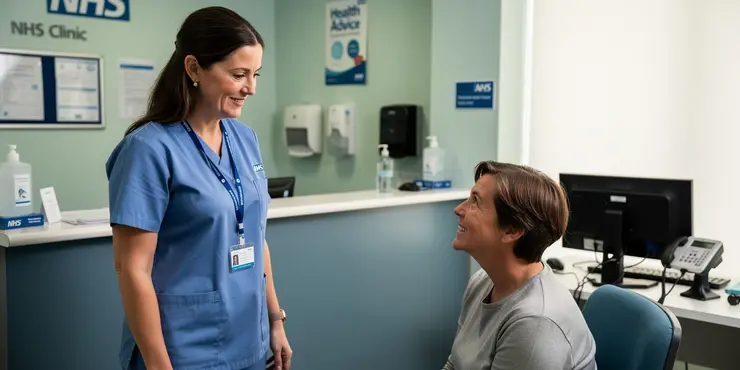
How can I protect myself from new COVID-19 variants?
Relevance: 85%
-
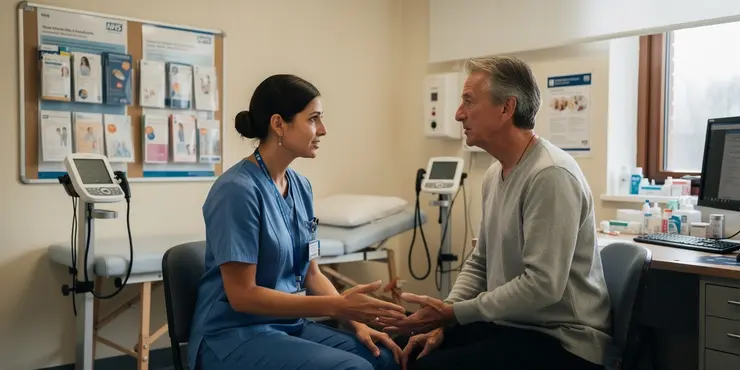
Are new COVID-19 variants more dangerous?
Relevance: 84%
-
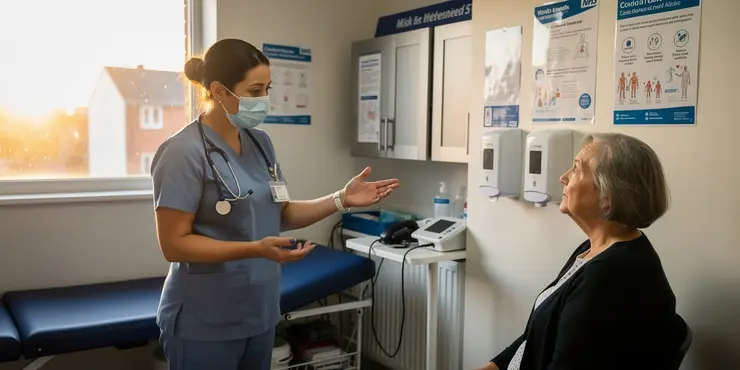
How can I protect myself from Covid-19 variants?
Relevance: 83%
-
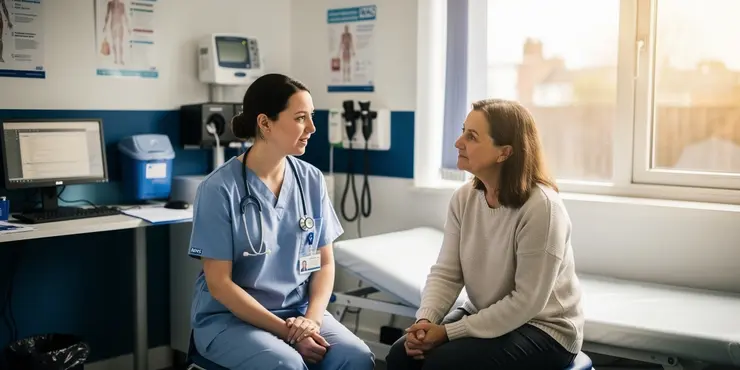
Should I get vaccinated if I already had COVID-19?
Relevance: 76%
-
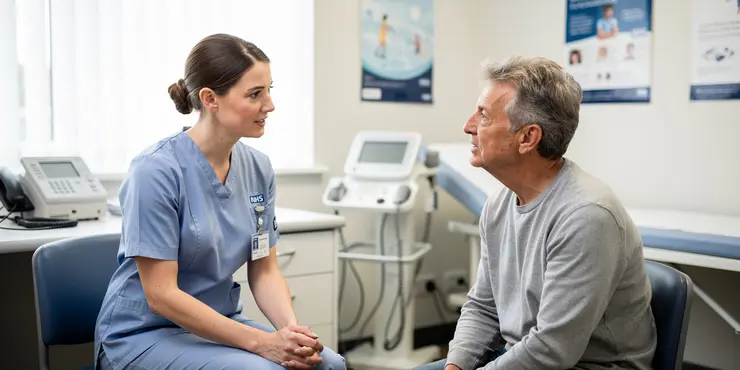
What sources should I consult for information on Covid-19?
Relevance: 73%
-
Does the flu vaccine protect against COVID-19?
Relevance: 71%
-
Can the COVID jab give me COVID-19?
Relevance: 69%
-
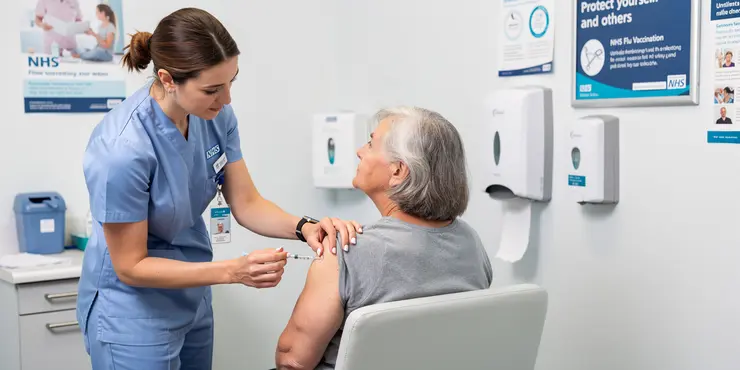
Will getting the flu jab protect me against COVID-19?
Relevance: 66%
-
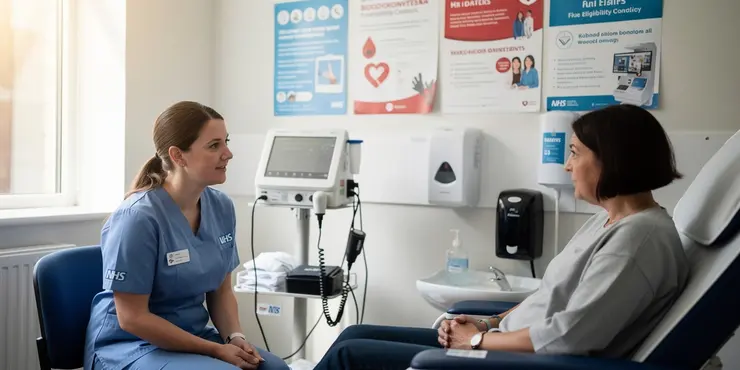
Can COVID-19 be transmitted through blood transfusions?
Relevance: 66%
-
What are the COVID-19 travel restrictions for traveling to Spain?
Relevance: 64%
-
Does travel insurance cover COVID-19 related issues?
Relevance: 64%
-
Can air physiotherapy help with COVID-19 recovery?
Relevance: 61%
-
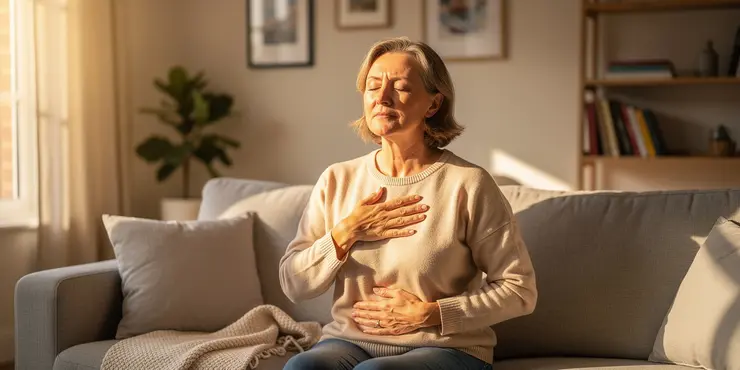
Breathlessness after COVID-19 - helpful techniques
Relevance: 61%
-
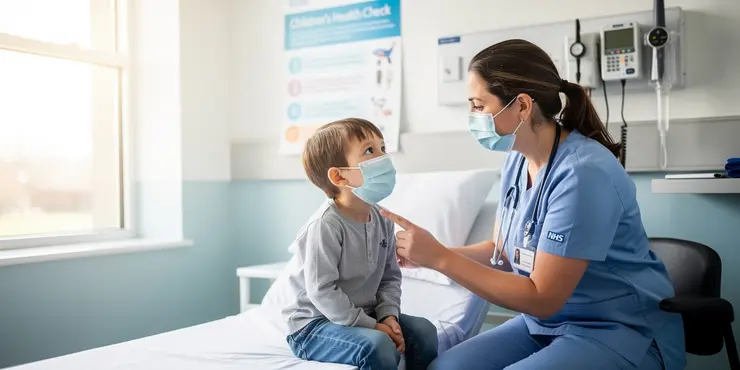
Are children more affected by new variants of COVID?
Relevance: 59%
-

What are the Nimbus and Stratus variants of Covid?
Relevance: 58%
-
New Covid Variant Strains
Relevance: 57%
-
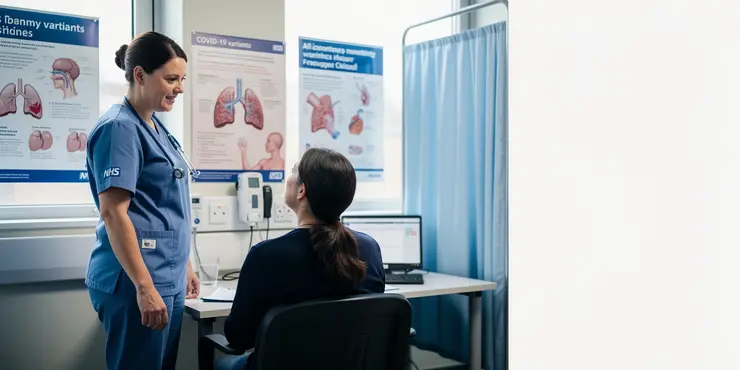
Can new variants cause reinfection?
Relevance: 56%
-
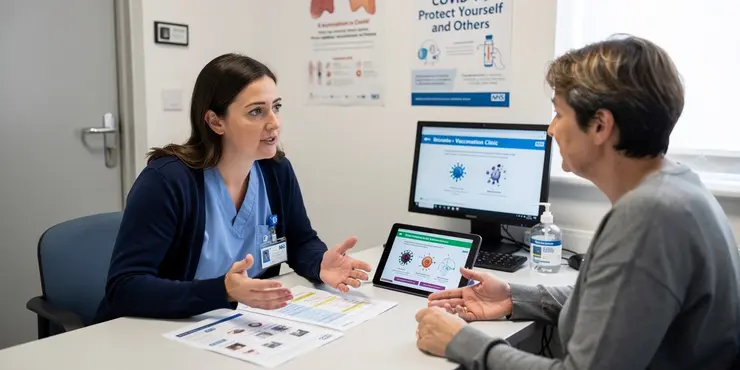
Are new variants more transmissible?
Relevance: 56%
-

Is there concern about new hypothetical variants like Nimbus and Stratus?
Relevance: 51%
-
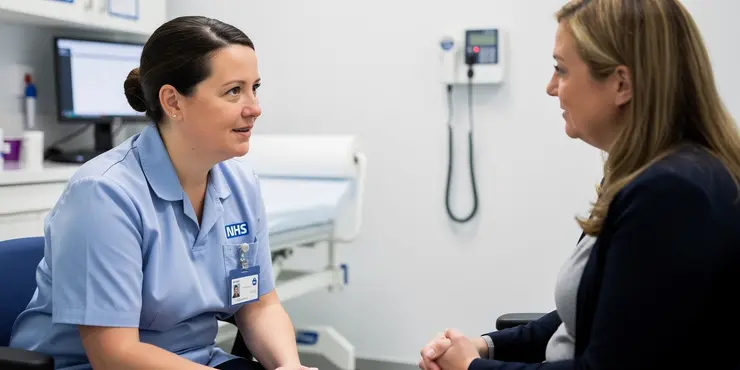
Is the Nimbus variant more contagious?
Relevance: 47%
-
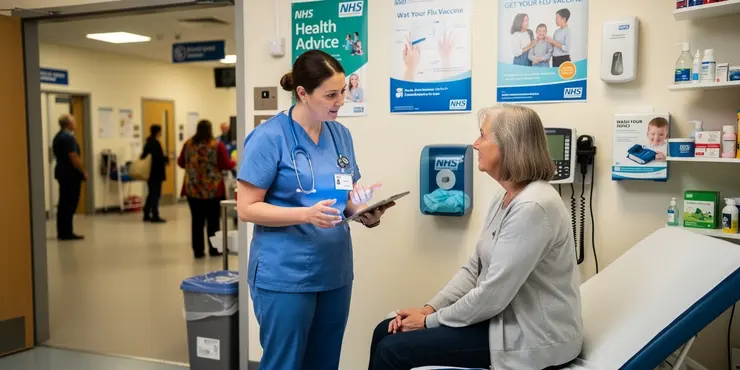
What would happen if the Nimbus variant existed?
Relevance: 46%
-
What are some well-known COVID-19 variants?
Relevance: 46%
-
Are the symptoms different with new COVID-19 variants?
Relevance: 46%
-
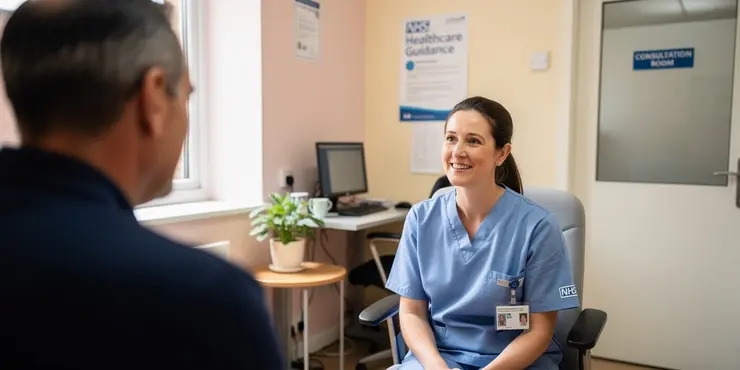
Should I be worried about new variants?
Relevance: 43%
-
What is being done globally to track COVID-19 variants?
Relevance: 43%
-
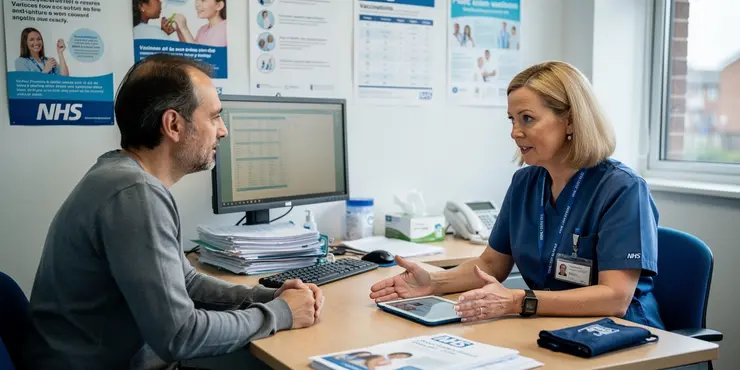
Do vaccines protect against the Stratus variant?
Relevance: 42%
-
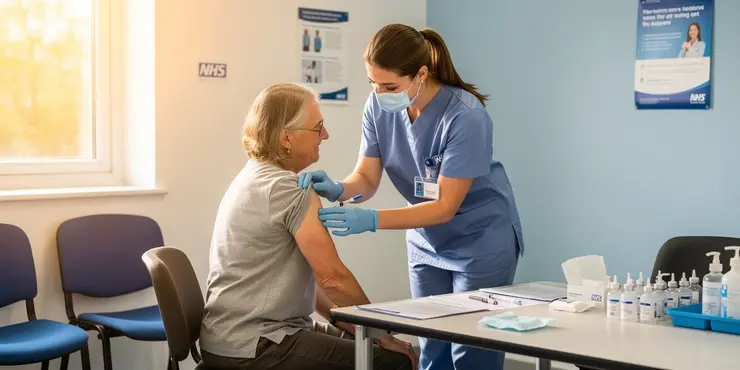
How long does immunity last after getting the COVID jab?
Relevance: 40%
-
Can current treatments handle new COVID-19 variants?
Relevance: 40%
-
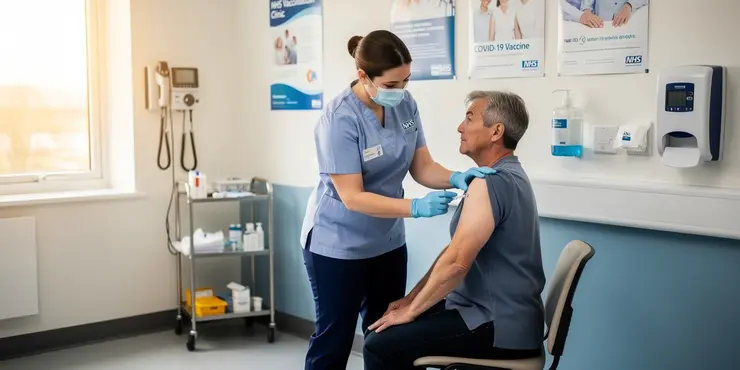
Are COVID jabs safe?
Relevance: 38%
-
How do COVID jabs work?
Relevance: 38%
Introduction
The emergence of COVID-19 variants has been a notable challenge in the ongoing battle against the pandemic. Understanding how these variants arise is crucial for developing effective responses, including vaccines and public health strategies. This article explores the mechanisms behind the emergence of variants in the context of the UK and globally.
The Role of Mutations
At the core of variant emergence are mutations, which are changes in the virus’s genetic material. The COVID-19 virus, like all viruses, replicates by copying its RNA genome. During this replication process, errors can occur, leading to mutations. While most mutations are harmless, some can alter the virus in significant ways, affecting its transmissibility, severity, or immune evasion capabilities.
Selection Pressure
Selection pressure plays a critical role in the propagation of certain mutations. When a mutation gives the virus an advantage – such as increased transmissibility or the ability to partially evade the immune response – that variant is more likely to spread within a population. Thus, the selective environment, which can be influenced by factors such as host immunity and interventions like vaccines, determines which variants become predominant.
Variant of Concern
When a variant possesses mutations that significantly impact public health measures or treatment effectiveness, it may be classified as a Variant of Concern (VoC). The World Health Organization and national health agencies like Public Health England closely monitor such variants. Measures are often implemented to control their spread, including increased surveillance and genomic sequencing efforts.
UK Context
In the UK, extensive genomic surveillance has been a key tool in identifying and tracking COVID-19 variants. The country was one of the first to identify the Alpha variant, which spread rapidly and prompted adjustments in public health responses. The UK's sequencing capabilities have allowed for the prompt identification and classification of other variants, aiding global understanding and containment efforts.
Vaccination and Future Implications
Vaccination plays a pivotal role in controlling the spread of COVID-19 and its variants. By reducing the overall number of infections, vaccines also decrease the opportunity for mutations to occur. However, the emergence of variants that can partially evade immune responses remains a concern, underscoring the need for booster programmes and the potential development of updated vaccines.
Conclusion
The rise of COVID-19 variants is a complex interplay of biological and epidemiological factors. Continuous monitoring, rapid genomic sequencing, and international collaboration remain vital in understanding and responding to these variants. For the UK and the world, ongoing research and adaptive public health strategies will be crucial in navigating the evolving landscape of the COVID-19 pandemic.
Introduction
New forms of COVID-19, called variants, have made fighting the virus harder. To stop the spread, we need to understand these variants. This helps us create better vaccines and health plans. Let’s learn how these variants come about in the UK and worldwide.
The Role of Mutations
Variants happen because of mutations. A mutation is a change in the virus's code. COVID-19 copies its code when it spreads. Sometimes mistakes happen and mutations occur. Most are harmless, but some can make the virus spread faster or hide from our immune system.
Selection Pressure
Some mutations help the virus do better, like spreading more easily. These helpful changes are more likely to spread to others. Things like our body’s defense system and vaccines can affect which mutations become common.
Variant of Concern
Some variants change things so much that we call them "Variants of Concern." This means they can spread fast or make treatments not work well. Health experts watch these variants closely. They try to stop them with extra tests and checks.
UK Context
The UK is really good at finding and studying COVID-19 variants. In fact, the UK found the Alpha variant first. By studying these variants, the UK helps other countries understand and manage COVID-19 better.
Vaccination and Future Implications
Getting vaccinated is very important to stop COVID-19 and its variants. Vaccines prevent lots of people from getting sick, which means fewer chances for the virus to change. But sometimes, variants that can get past vaccines appear. This is why booster shots and new vaccines are important.
Conclusion
COVID-19 variants are complicated, but we can keep them under control. We must keep watching the virus and sharing what we learn. In the UK and everywhere, we need to keep doing research and changing our plans to stay safe from COVID-19.
Frequently Asked Questions
What are COVID-19 variants?
COVID-19 variants are versions of the virus that causes COVID-19, SARS-CoV-2, which have acquired mutations in their genetic material.
How do COVID-19 variants arise?
Variants arise through mutations in the virus's RNA during replication. These mutations can lead to changes in the virus's proteins, potentially altering its characteristics.
What causes mutations in the virus's RNA?
Mutations can occur due to errors in the viral replication process. As the virus replicates inside a host, occasional mistakes in copying its genetic material lead to mutations.
Are all mutations in the virus significant?
No, most mutations do not significantly affect the virus's properties. However, some mutations can alter the virus's behavior, such as its transmissibility, severity, or immune escape.
How often do mutations occur in viruses like SARS-CoV-2?
Mutations are relatively common during viral replication. RNA viruses, like SARS-CoV-2, have higher mutation rates compared to DNA viruses.
Do all COVID-19 variants spread more easily?
Not all variants spread more easily. Some may have increased transmissibility, but others may not significantly differ from the original virus in this regard.
Can variants affect the severity of COVID-19 disease?
Yes, certain variants have been associated with more severe illness, but this is not true for all variants.
Do current vaccines work against new variants?
Most vaccines remain effective against severe disease and hospitalization caused by many variants, although their efficacy against infection may vary.
What role does natural selection play in variant emergence?
Natural selection can favor variants with advantageous mutations, such as those that enhance transmissibility or allow immune escape, promoting their spread.
How are COVID-19 variants detected?
Variants are detected through genomic sequencing, where the virus’s RNA is analyzed to identify mutations and track changes over time.
Why is it important to monitor COVID-19 variants?
Monitoring variants helps in understanding their spread, potential impact on health measures, and adjusting public health strategies and vaccines accordingly.
What is a Variant of Concern (VOC)?
A Variant of Concern is a variant that has been shown to significantly affect disease spread, severity, or immune escape, requiring heightened response efforts.
Can new variants evade existing COVID-19 treatments?
Some variants might reduce the effectiveness of certain treatments, but ongoing research and adaptation of therapies help manage this issue.
How does global travel influence the spread of variants?
Global travel can facilitate the rapid spread of new variants between countries, emphasizing the importance of genomic surveillance and travel-related measures.
What is the difference between a mutation and a variant?
A mutation is a change in the genetic material of the virus, while a variant is a virus that has changed due to one or more mutations.
How do health organizations respond to new variants?
Health organizations monitor variants, conduct research, and adjust guidelines, treatments, and vaccination strategies as necessary.
Could COVID-19 variants lead to reinfections?
Yes, some variants may partially evade immune protection from past infections or vaccinations, potentially leading to reinfections.
What is genomic sequencing, and why is it important?
Genomic sequencing is the process of mapping out the virus's genetic code. It is crucial for identifying mutations and tracking the development of new variants.
How do local outbreaks contribute to the emergence of variants?
Local outbreaks with high transmission rates provide opportunities for the virus to mutate, possibly resulting in new variants.
Can human behavior impact the development of variants?
Yes, behaviors that increase transmission, such as limited adherence to public health measures, can provide more opportunities for the virus to replicate and mutate.
What are COVID-19 variants?
COVID-19 is a bug that can make people sick. Sometimes, this bug can change a little bit. When it changes, it is called a "variant." Variants are like new versions of the bug.
If you want to know more, you can:
- Ask a grown-up to help you understand.
- Look at pictures that show how bugs change.
- Use a video that explains things with simple words.
Remember, it's okay to ask for help if you don't understand something!
COVID-19 variants are different types of the virus called SARS-CoV-2. This virus causes COVID-19. The variants have small changes in their genes.
How do new types of COVID-19 happen?
Sometimes, the virus that makes COVID-19 changes a little bit. These changes make new types of the virus. This can happen when the virus spreads from one person to another.
Support tip: Try using pictures or videos to help understand how the virus changes.
Changes in the virus happen because its RNA can change when it makes copies of itself. These changes are called mutations. Mutations can change the virus's proteins and how the virus acts.
What makes changes happen in the virus's RNA?
Here are some simple ways to help you understand:
- Virus Changes: Viruses can change by mistake when they copy themselves.
- Environment: Where the virus is can affect how it changes. The weather and other living things around it can make a difference.
- Tools to Help: Use pictures or videos to see how changes happen in viruses.
- Ask for Help: If it's confusing, ask a friend, teacher, or carer to explain.
- Reading Tools: Apps or audio books can make reading easier.
Remember, it's okay to ask questions if you don't understand all at once.
Sometimes, a virus makes mistakes when it is making more copies of itself. These mistakes can change the virus. We call these changes mutations.
Do all changes in the virus matter?
No, most changes in the virus do not make a big difference. But some changes can make the virus act differently. They can change how easily it spreads, how sick it makes people, or how it avoids our body's defenses.
If you find reading hard, try using tools that read text out loud for you. Taking breaks while reading can also help you understand better.
How often do changes happen in viruses like COVID-19?
Viruses like COVID-19 can change over time. These changes are called mutations. They happen often because viruses make lots of copies of themselves. Sometimes, when making copies, small mistakes happen. These mistakes can lead to changes.
It is like making lots of copies of a drawing. Sometimes, small things look different in the new copies. The same thing happens with viruses. These changes can happen all the time.
To learn more, you can use tools like videos or pictures. They can help explain things in a simple way. Talking to someone who knows about viruses can also help.
When a virus makes copies of itself, changes called mutations can happen often. Viruses that use RNA, like the coronavirus, change more than viruses that use DNA.
Do all types of COVID-19 spread easily?
Not all virus types spread more easily. Some might spread faster, but others don't spread much differently from the first virus.
Do different types of the COVID-19 virus make people feel more sick?
Some types of the virus can make you sicker, but not all types do this.
Do current vaccines work on new types of the virus?
Right now, experts think vaccines help fight new virus types.
The vaccines might not work as well, but they can still protect you.
If you are worried, talk to a doctor or nurse.
They can give you advice and answer your questions.
You can also use speech-to-text tools or ask someone to read this to you.
Most vaccines still work well to stop people from getting very sick or going to the hospital. This is true even with different kinds of the virus. But sometimes, vaccines do not stop you from getting the virus.
How does natural selection help new variants appear?
Natural selection is like a test for living things. It helps decide which ones survive and have babies. When living things change, or make variants, natural selection checks if they are good or not.
If a variant is strong and healthy, it can live and have more babies. This means the variant will grow in number. If a variant is weak or sick, it might not live as long or have babies.
We can use pictures or videos to learn more about natural selection. Asking for help from a teacher or a friend also makes learning easier.
Natural selection helps living things with helpful changes. These changes might help them spread easier or hide from the body's defenses. This makes them spread more.
How do we find different kinds of COVID-19?
We find different kinds of COVID-19 by looking at samples. Scientists take bits of the virus from people’s noses or mouths. They look at these bits very closely.
Special tools: Scientists use special machines to see tiny parts of the virus. These special machines are very powerful.
Easy ways to learn: You can watch videos or look at pictures. These can help you understand how scientists work.
Scientists look at the virus's RNA to see how it changes over time. They do this by studying the virus's genes.
Why do we need to keep an eye on COVID-19 variants?
COVID-19 variants are different types of the virus. Watching them helps us understand how the virus is changing.
This is important because:
- Some variants can spread faster.
- Some might make people sicker.
- Vaccines and medicines may work differently on them.
Keeping track helps doctors and scientists keep everyone safe.
To learn more, you can:
- Watch videos about COVID-19.
- Ask a trusted adult to explain.
- Use picture books or apps about health.
Watching changes in viruses helps us know how they spread, affect health, and update safety rules and vaccines. This keeps people safe and healthy.
You can use pictures to help explain viruses. You can also use reading apps that read the words out loud for you.
What is a Variant of Concern (VOC)?
A Variant of Concern (VOC) is a type of virus that has changed. Scientists watch these changes because they might make the virus spread faster or cause more serious illness. It's important to know about VOCs so we can stay safe.
To understand this better, you can:
- Look at pictures and diagrams about viruses.
- Ask a teacher or a parent for help.
- Use apps that explain things with videos.
A Variant of Concern is a type of virus that can make people sick more easily, make them sicker, or stop the body from fighting it. This means doctors and scientists need to pay extra attention to it.
Can new kinds of COVID-19 avoid current treatments?
Scientists are checking if new types of the COVID-19 virus can escape the medicines we have now. This means they want to know if the virus can change and still make people sick, even when they take medicine.
If you find reading hard, here are some tips:
- Use a dictionary to learn what tricky words mean.
- Ask someone to read with you and help explain any confusing parts.
- Take breaks if the information feels too much.
Some changes in the virus might make some treatments not work as well. But scientists are always studying and making new treatments to help fix this.
How does traveling around the world spread viruses?
People travel to different countries on planes, trains, and boats.
When people move, they can carry viruses with them. These viruses can change, becoming "variants."
If a person has a virus, they might give it to other people in new places.
To stop spreading viruses, people can wash hands often and wear masks.
People traveling around the world can help new sicknesses spread quickly between places. This means it's important to keep an eye on the germs and to have rules for travel.
What is the difference between a mutation and a variant?
A mutation is a change in the DNA. DNA is like the instructions in our body.
A variant is a different version of something. For DNA, a variant is a different version of a gene.
Tips to understand:
- Imagine DNA like a big recipe book. A mutation is like changing a word in a recipe.
- A variant is like having a new recipe that is a little different.
Helpful tools:
- Use pictures or drawings to help explain.
- Ask someone to read with you.
- Read slowly and take your time.
A mutation is a change in the virus's genes. A variant is a new form of the virus that happens because of one or more changes in its genes.
How do health groups respond to new virus changes?
Health groups work hard to keep us safe. When there is a new change in a virus, they take action. They study the virus to learn about it and make plans to protect people. They might tell us to wash our hands often, wear masks, or get new vaccines. They talk to doctors and scientists to find the best ways to stop the virus.
If you find this hard to read, you can ask someone to read it with you. It's okay to ask questions. You can also use a ruler to follow the words or read out loud. These tools can help you understand better.
Health helpers watch for changes in sickness, study them, and change the rules, treatments, and shots to help people stay safe.
Can people catch COVID-19 again because of new variants?
Yes, new types of COVID-19 can make people get sick again, even if they had it before.
Here are some ways to stay safe:
- Keep wearing a mask when you are around others.
- Wash your hands often with soap.
- Make sure your vaccine shots are up to date.
Yes, some types of the virus can sometimes avoid the body's defense system. This means people might get sick again, even if they had the virus before or got a vaccine.
Helpful tip: Use pictures or draw things to better understand how viruses work and how vaccines help. It can also help to talk to someone who can explain it to you in a simple way.
What is genomic sequencing, and why is it important?
Genomic sequencing means looking at a living thing's DNA. DNA tells how our bodies work.
It is important because it helps doctors know more about diseases. They can find out why someone is sick and how to help them get better.
You can use pictures, like diagrams or flowcharts, to understand this better. You can also listen to someone read this out loud or watch videos that explain it.
Genomic sequencing means looking at the virus's genes. This helps find changes in the virus and see how new types of the virus grow.
How do local outbreaks help new virus types appear?
When lots of people get sick in one place, it is called a local outbreak. This can help new types of a virus to show up.
If a virus spreads quickly, it can change. These changes can make the virus different.
New virus types are called variants. These can happen when a virus changes in a local outbreak.
To understand better, use pictures and videos. Talk with someone if you have questions.
When lots of people get sick in one area, the virus can change and become different. This might make new types of the virus.
Can what people do change how viruses grow?
People's actions can affect how viruses change.
Washing hands, wearing masks, and not going close to sick people can help.
Viruses change if they spread a lot. So, keeping safe stops this.
Using pictures and videos can help understand more.
Yes, when people do not follow health rules, the virus can spread more. This gives the virus more chances to change and get stronger.
Useful Links
This website offers general information and is not a substitute for professional advice.
Always seek guidance from qualified professionals.
If you have any medical concerns or need urgent help, contact a healthcare professional or emergency services immediately.
Some of this content was generated with AI assistance. We’ve done our best to keep it accurate, helpful, and human-friendly.
- Ergsy carfully checks the information in the videos we provide here.
- Videos shown by Youtube after a video has completed, have NOT been reviewed by ERGSY.
- To view, click the arrow in centre of video.
- Most of the videos you find here will have subtitles and/or closed captions available.
- You may need to turn these on, and choose your preferred language.
- Go to the video you'd like to watch.
- If closed captions (CC) are available, settings will be visible on the bottom right of the video player.
- To turn on Captions, click settings .
- To turn off Captions, click settings again.
More Items From Ergsy search
-
What is a COVID-19 variant?
Relevance: 100%
-
What is the Covid-19 Stratus variant?
Relevance: 96%
-
How are COVID-19 variants detected?
Relevance: 95%
-
How do COVID-19 variants arise?
Relevance: 95%
-
Do new variants affect COVID-19 testing?
Relevance: 93%
-
Where can I learn about real Covid-19 variants?
Relevance: 89%
-

How do scientists name new Covid-19 variants?
Relevance: 88%
-

Do vaccines work against new COVID-19 variants?
Relevance: 86%
-
How often do new COVID-19 variants emerge?
Relevance: 86%
-
What is the process to identify a new Covid-19 variant?
Relevance: 86%
-

How can I protect myself from new COVID-19 variants?
Relevance: 85%
-

Are new COVID-19 variants more dangerous?
Relevance: 84%
-

How can I protect myself from Covid-19 variants?
Relevance: 83%
-

Should I get vaccinated if I already had COVID-19?
Relevance: 76%
-

What sources should I consult for information on Covid-19?
Relevance: 73%
-
Does the flu vaccine protect against COVID-19?
Relevance: 71%
-
Can the COVID jab give me COVID-19?
Relevance: 69%
-

Will getting the flu jab protect me against COVID-19?
Relevance: 66%
-

Can COVID-19 be transmitted through blood transfusions?
Relevance: 66%
-
What are the COVID-19 travel restrictions for traveling to Spain?
Relevance: 64%
-
Does travel insurance cover COVID-19 related issues?
Relevance: 64%
-
Can air physiotherapy help with COVID-19 recovery?
Relevance: 61%
-

Breathlessness after COVID-19 - helpful techniques
Relevance: 61%
-

Are children more affected by new variants of COVID?
Relevance: 59%
-

What are the Nimbus and Stratus variants of Covid?
Relevance: 58%
-
New Covid Variant Strains
Relevance: 57%
-

Can new variants cause reinfection?
Relevance: 56%
-

Are new variants more transmissible?
Relevance: 56%
-

Is there concern about new hypothetical variants like Nimbus and Stratus?
Relevance: 51%
-

Is the Nimbus variant more contagious?
Relevance: 47%
-

What would happen if the Nimbus variant existed?
Relevance: 46%
-
What are some well-known COVID-19 variants?
Relevance: 46%
-
Are the symptoms different with new COVID-19 variants?
Relevance: 46%
-

Should I be worried about new variants?
Relevance: 43%
-
What is being done globally to track COVID-19 variants?
Relevance: 43%
-

Do vaccines protect against the Stratus variant?
Relevance: 42%
-

How long does immunity last after getting the COVID jab?
Relevance: 40%
-
Can current treatments handle new COVID-19 variants?
Relevance: 40%
-

Are COVID jabs safe?
Relevance: 38%
-
How do COVID jabs work?
Relevance: 38%


